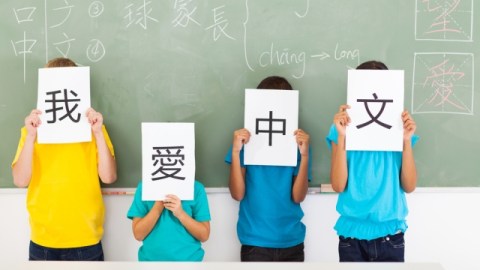ZERO TRANSLATION – As Chinese Are Madly In Love With English Words, Abandon The Archaic Habit

Young trailblazers all over China mix English words and Chinese characters to modernize China’s 3300 years old writing system. Conservatives want to stop this movement. No need, says Dragons and Pandas, if only the West also abandoned its own outdated notion of ‘national language’:
COPENHAGEN/TOKYO – Globus Kina’s Christina Boutrup hosts German linguist and end-translation advocate Thorsten Pattberg (D. Litt., Peking University) i. o. t. discuss the ‘Zero Translation’ phenomenon:
“This phenomenon, termed “zero translation”, has sparked a fierce debate – why is that so important for some people in China that everything has a Chinese word?” –Christina Boutrup, Globus Kina
A Notion In Favor Of Limiting Translation
First of all, it is a late spring early summer topic. We have similar discussions about ‘national languages’ –and the protection of thereof- in German and French media, too. Every year, in fact. The main concern is this: We have A LOT of English words coming in. What do we do about it?!
RELATED The Coming of Post-Translational Society
It is unfortunate that those Chinese intellectuals talks about ‘purity’ and ‘vitality’ of culture and language. That is so 20th-Century. Imagine they would also do the talking about race and ethnicity.
Here, the ideology is NOT multiculturalism –it is assimilation. And one way, the BEST WAY, is by translation; that’s because THEN our eyes and ears are met with the familiar and the convenient.
“The concept of “zero translation” is introduced both as a translation strategy for overcoming the unbridgeable differences between languages, and as a means of safeguarding the general validity of translatability as the theoretical cornerstone of translation.” –Qiu Maoru, 中国翻译》2001年1月第22卷第1期(P24-27)
Liberating the World’s Vocabularies
Critics are right, they should PROTECT their cultures and languages (at least to a certain degree), because that’s apparently what everyone is doing. We are competing for our sovereignty over thought and definitions. Remember George Orwell’s Six Rules for Good Writing: Rule No. 5: “Never use a foreign phrase, word, or a jargon if you can think of an everyday English equivalent.”
READ MORE Language imperialism – ‘democracy’ in China (in The Japan Times)
ALL major Anglophone media apply those rules, be it The New York Times, The Wall Street Journal, or The Economist, and so on. They want to expand THEIR OWN culture, not surrender it. Nationalists in China have those worries, too.
Having said all this, however, most young people are not having any of it. They want to see all foreign words liberated. It’s a good thing.
“The current lack of Chinese translation for new English terms is due to an increasing interest in and respect for Western culture. More Chinese people can speak English now and they generally want to use English words where appropriate in normal conversation.” –Empowerlingua.com
RELATED Global Language – The Chinese Dream, no wait, Meng!
Aesthetics of Multi-layered Scripts
The use of English words in Chinese writings looks strange at first. This is aggravated by the fact that Chinese uses pictographs, not letters. So, English words do really pop out and may irritate. That it works nevertheless is shown in Japan, where four scriptures form a highly sophisticated mish-mash: Hiragana for Japanese readings; Katakana for foreign loanwords; Kanji as pictographs introduced from China in the 5h century; and the Roman alphabet for adopted names.
I am in favor of ending or limiting translation.
ADDITIONAL READING: Relationship Between Translation And Culture Cultural Studies Essay, by Qiu Maoru
Image credit: Michaeljung/Shutterstock.com
Cross-posted with east-west-dichotomy.com. You can follow me on Twitter, my Website, or my other Blog. See you next time around!




